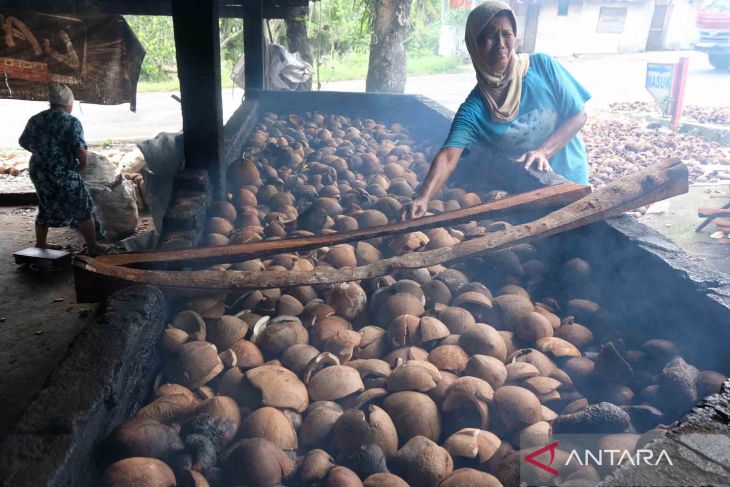Jakarta – According to a researcher from BRIN’s Chemical Research Center, the National Research and Innovation Agency (BRIN) is using tempeh yeast to extract cooking oil and virgin coconut oil (VCO) from coconut.
According to Teuku Beuna Bardant, the addition of tempeh yeast automatically separates oil and water inside coconut milk since the protein in coconut milk that helps oil and water blend is devoured by the yeast.
“As the amount of protein drops, so does its function of maintaining the oil and water mix stability,” he noted in a statement released on Monday.
“As a result, there is no longer anything that holds the oil and water molecules together, and the two separate on their own,” he continued.
He said that the oil is produced using the wet method, which initially entails the production of milk.
He explained that coconut meat is grated, processed into milk, and then tempeh yeast is added to the mix.
The oil is then heated to 70 degrees Celsius to kill the yeast and its spores contained within it, he explained.
The process is done two to three times and is commonly referred to as pasteurization, he noted.
“This oil is healthier for human health since it has a short and medium chain,” explained Bardant.
Because of the shorter chain, coconut oil and VCO are easier to consume. When people eat such oils, the body uses them rather than storing them under the skin tissue, according to Bardant.
Consuming coconut oil, he claims, does not cause people to acquire weight as quickly as palm oil.
He also stated that he anticipates people using coconut oil for cooking and palm oil for energy fuel.
“People will not be overly reliant on palm oil because coconut oil may also be used as a cooking oil,” he said.
Source: antara


